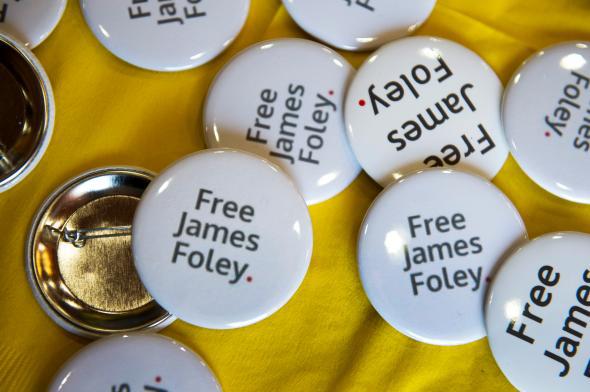Under a newly announced policy, the U.S. government will no longer threaten the families of hostages held by terrorist groups abroad if they attempt to pay ransoms. The new directive, first reported Monday by Foreign Policy, comes after a monthlong review of U.S. hostage policy ordered by the White House after the highly publicized murders of several Americans by ISIS.
This is less a new policy than a move to make official—and hopefully make consistent—what has been unspoken practice for some time. Despite laws against providing material support to terrorist groups, the U.S. hasn’t sought to prosecute families attempting to pay for the return of their loved ones, and such ransoms have been paid in many cases. As former FBI hostage negotiator Gary Noesner told me last month, “No prosecutor in the country is going to take a family to court for trying to save the life of their son.”
However, not everyone in the administration got that memo. The mother of slain American journalist James Foley was reportedly told by a White House National Security Council staff member that she could face criminal charges if she attempted to pay a ransom for his return. The new directive is a welcome effort to make sure no staffer does that again.
The new directive will also create mechanisms within the government to oversee hostage crises including a “fusion cell” within the FBI, a team at the White House to manage policy, and a State Department envoy to coordinate contacts with foreign governments during the negotiations.
According to the New York Times, while Obama is keeping in place the policy against the government making material concessions to terrorists—in contrast to the policies of some European countries—he will make clear that “the government can communicate and negotiate with captors holding Americans or help family members seeking to do so in order to ensure their safe return.”
This is also in keeping with long-standing U.S. policy. Communicating with hostage takers, terrorist or otherwise, can buy valuable time and help authorities gain useful information. But in the years since 9/11, the “no concessions” mandate has been interpreted by some lawmakers as a “no negotiations” or “no contact” policy. Now it’s clear that is not the case.
The new guidelines are a sensible step, but the U.S. is still likely to face painful moral choices and occasional legal contradictions when dealing with hostage crises. It’s one of the many downsides of fighting a seemingly never-ending war against an ever-changing and ill-defined enemy.
